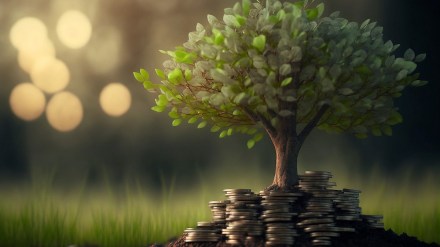Green fixed deposit is a financial instrument encouraging sustainable development by channelling funds towards projects focused on renewable energy, clean technology, or other environmentally beneficial initiatives.
From June 1, new green fixed deposit norms kicked in. Banks or financial institutions accepting green deposits are now required to inform the Reserve Bank of India (RBI) about how they would invest the funds. The new norms are expected to increase transparency and ensure the funds collected in the name of green deposits are invested towards the intended cause.
“With the revised green FD norms effective from June 1, banks that accept green deposits will have to inform the Reserve Bank of India (RBI) how they would invest the funds. This would further enhance transparency and ensure that the money goes to its intended cause, thereby increasing investor confidence,” says Abhijit Roy, CEO of GoldenPi Technologies.
The article looks at how green fixed deposits work, the interest rates and the risks involved with such investment.
How it works
Green fixed deposits work like regular term deposits where investors can earn a fixed interest for a fixed tenure. However, there is a difference in how the funds collected under green deposits are utilised.
“A green fixed deposit, also known as an environmentally friendly fixed deposit, is a financial instrument that encourages sustainable development by channelling funds towards projects focused on renewable energy, clean technology, or other environmentally beneficial initiatives,” says Roy.
“Unlike regular fixed deposits, green FDs prioritize investments that have a positive impact on the environment. These investments can include financing solar power projects, wind farms, organic farming, energy-efficient infrastructure, and more,” he adds.
Also Read: REPO RATE UNCHANGED: Lock in bank FDs at highest rates
Who can invest?
Green FDs are generally available to all individuals who meet the eligibility criteria set by the bank or the financial institution. The specific criteria may vary among banks but typically include factors such as age, residency, and the ability to provide the required documentation.
Where you can invest?
Many financial institutions in India, including HSBC and HDFC are offering green FDs for both individuals and corporations. These FDs focus on sectors such as renewable energy, clean transportation, pollution prevention, green construction, and sustainable water management.
While HSBC provides a Green Deposit for corporate clients, HDFC is offering offers green and sustainable deposits for individuals.
Other financial institutions, such as Federal Bank, IndusInd Bank, Union Bank, and DBS Bank, also have green deposit schemes.
Green FD rates
Eligible depositors can get up to 7% or more interest rates from green FDs.
For example, the interest rate for regular deposits under HDFC’s Green and Sustainable Deposit Scheme is 7.25% per annum for a tenure of 24-35 months. It is offering 7.3% interest on deposits of 36-60 months and 7.2% interest on deposits of 61 months to 120 months, according to the information on HDFC’s website. Senior citizens can get an additional interest rate of 0.25% per year on deposits up to Rs 2 crore.
For more details about the interest rate and tenure, you should directly connect with the bank.
Premature withdrawal and overdraft
Roy says, “These green FDs offer assured returns and vary in tenure from 18 months to 10 years. Premature withdrawal is allowed with certain conditions, and deposits up to Rs 5 lakh are insured.”
Additionally, overdraft facilities can be availed against the green FDs, although they may be converted to regular FDs in such cases.
Benefits
According to Roy, investing in green FDs brings the following benefits.
- Firstly, it allows individuals to contribute to sustainable development and environmental conservation efforts. By investing in projects focused on clean energy and eco-friendly practices, investors play a part in mitigating climate change and reducing carbon footprints.
- Secondly, green FDs often provide competitive interest rates, ensuring financial returns for investors. Moreover, investing in environmentally conscious projects can diversify one’s investment portfolio and align with personal values.
Also Read: Senior Citizen Fixed Deposit interest rate increase could be a thing of past. Here’s why
Risks
However, Green FDs may carry specific risks associated with the projects funded, such as regulatory changes or technological challenges. Additionally, the availability and accessibility of green FDs may vary among banks, limiting options for potential investors.
“It is recommended to carefully evaluate the terms, conditions, and interest rates before making an investment decision,” says Roy.
Disclaimer: The views expressed in this article are that of the respective commentators. The facts and opinions expressed here do not reflect the views of www.financialexpress.com. Please consult your financial advisor before investing.
